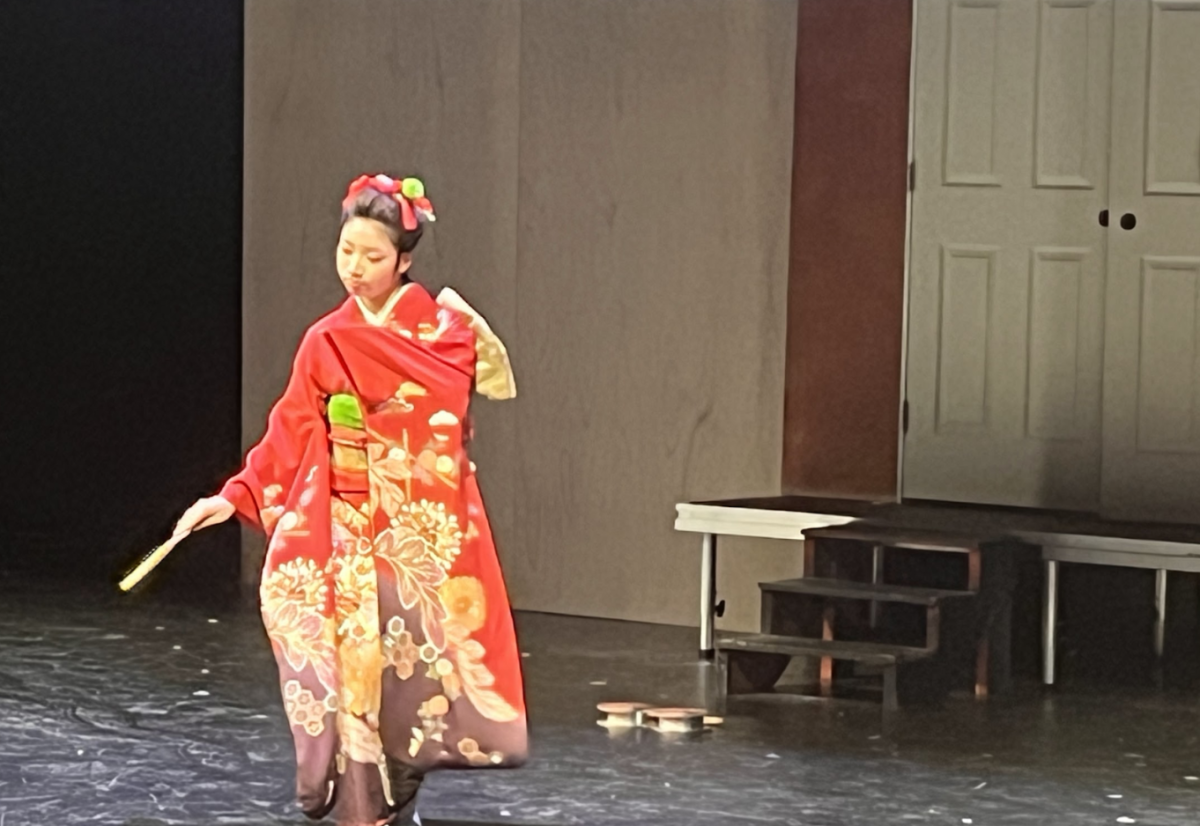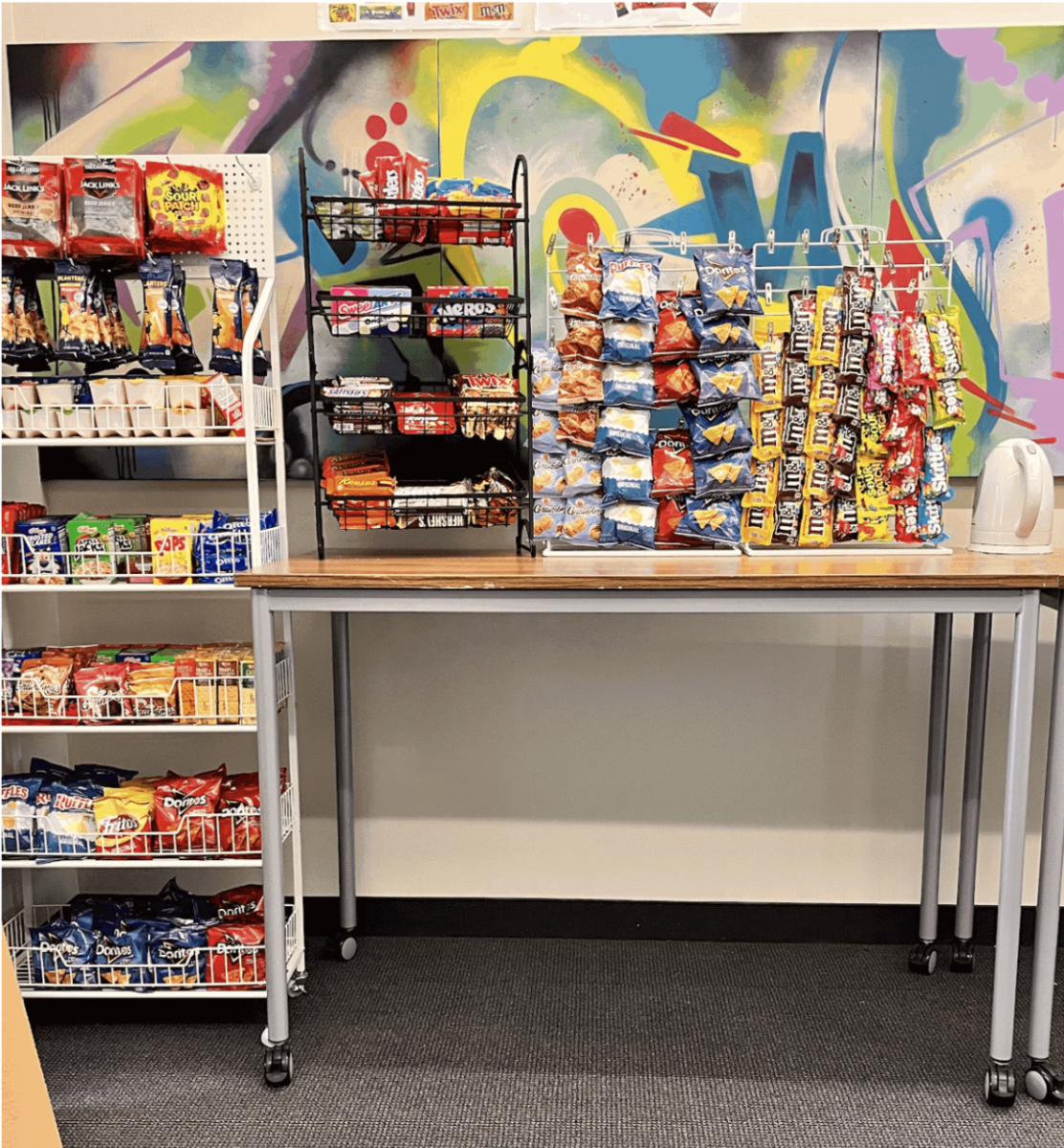Sara Kloepfer
Managing Editor
Today’s job market requires more persistence, more competition, and more effort beyond the traditional job search than ever before due to a struggling economy and increasing competition among young professionals — however, many CSH alums have found there are many different ways to tackle the daunting task of securing a career, an undertaking already feared by many seniors applying to college.
“I already feel pressure to choose a major and I’m not even in college yet,” senior Lizzie Leighton said. “People make it seem like your major determines your entire career. How am I supposed to know what I want to do for the rest of my life?”
But, as some students have found, having a college degree doesn’t always mean everything. After only one year of college, Tanaya Macheel (’08) took time off of attending Richmond University in London to take an 8-month internship as a research intern for the International Herald Tribune (IHT) in Paris.
“College isn’t going anywhere, especially at a time when so may people are trying to prolong their education as much as they can thanks to the high demand for jobs,” Macheel said. “College would still be available to me when I decided to return, and it was just something I knew would be a worthwhile year off.”
Halfway through her internship, Macheel began to work as an intern in the Comcen, the communication center responsible for syndicating the paper to the European, Asian and New York Times sections of the IHT. While it “wasn’t the most fun job,” working in Comcen exposed Macheel firsthand to the newsroom and everything that goes into newspaper publishing.
“It’s actually pretty exciting — suspenseful — to watch the newsroom go from cool and calm at 4:30 p.m. after the Page One meeting and then see everyone get progressively wound up and high strung closer to the deadline — especially on nights when reporters don’t get their copy in until very late or there are calls in for last-minute corrections,” Macheel said.
An editor of The Broadview during high school, Macheel viewed her time at the IHT as a chance to “dabble” in a field that she had always been interested in, but was not sure if she wanted to pursue as a career. Experience in a variety of different fields, not necessarily just a college degree, is what Macheel says make her resume strong.
“My resume isn’t exactly on a single track — I’ve got lots of great things to show, but in many different fields,” Macheel said. “The majority of my interviewers have viewed this as an advantage to me and in some cases to them as well.”
Currently back at college and still undeclared, Macheel’s experience living and working in Europe has given her a very different perspective of the job market from those working in America.
“Employers here are flexible about hiring people whose college majors are unrelated to the job,” Macheel said. “Employers really go beyond that now — it’s the toppings that matter. Employers want to know what a candidate will bring to a firm beyond the things they read on your CV [resume].”
Macheel, who submitted her resume and cover letter to an unspecific e-mail address on the IHT website credits finding a position to “being in the right place at the right time.”
Kyle Cannon (’05), a Library Assistant at The Langley School, counts herself as lucky to have gotten a job offer within a week of her interview at the pre-school through eigth grade independent school in Virgina. In a competitive job market, Cannon says positive application processes can be rare.
“[A good experience] was not the case for many of the over 60 jobs I applied to in the year prior to finding my job,” Cannon said. “For the majority of my job applications there was no response at all. I am not even sure they were read.”
After graduating from George Washington University in Washington D.C., Cannon worked at a temp agency that placed her in a variety of short-term positions — some positive while others were not — that allowed her to gain experience and stay busy while searching for a permanent position.
“The job application process in this economic climate is extremely competitive and is just as frustrating.” Cannon said. “Although I am sure employers are receiving many applications, the lack of response is very hurtful and it requires a lot of persistence on the side of the applicant.”
Depending on family and friends during the “humbling” process and keeping busy were key in staying grounded for Cannon, who tutored for a local non-profit and relied on job listing websites like idealist.com to continue building a resume even while not permanently employed.
Before entering any particular job field — in her case, education — Cannon stressed the importance of knowing exactly what professional direction to go in. Real-life experience can be the best way to find this out.
“Working in a school is the most rewarding job I can imagine, but it is also exhausting and really hard work,” Cannon said.
For most students preparing to enter the job market, gaining experience is important to being successful. Often, jobs may not be glamorous or interesting, but can be beneficial in developing a strong resume.
Sonia Evers (’04), a freelance fashion writer and blogger based in New York City, looks at the job industry with a “take-what-you-can-get” mindset, even though it may be difficult at times.
“The job market is vicious right now,” Evers said. “If you don’t jump on something immediately then someone else will. I just try to look at those jobs I don’t necessarily love as resume building.”
Like Cannon discovered, Evers says sending out resumes cold is not as effective as building relationships and connections.
“The people who know how to build relationships and keep them are the ones that are getting ahead,” Evers said.
Fellow New Yorker Libby Brittain (’07), a senior at Columbia University and Social Media and Digital Partnerships intern at the New York Times, has had similar experiences with the importance of networking, but says its too easy to be burdened down by doing the “right” thing instead of pursuing the things that interest you.
“These days, you don’t necessarily have to know exactly where you’re aiming in terms of your internships or career, you just have to be aiming,” Brittain said. “Figuring it out on the fly is part of the game now.”
Having held several different internships in the social media and technology field, Brittian has been surprised by the willingness of established professionals to provide guidance or support to students looking to break into the job industry.
“They remember looking for jobs, too, and I’ve found that making it clear you’re a motivated, driven student with a sincere interest in their line of work is an unbeatable combination,” Brittain said. “People love to help people — you just have to give them an opportunity to do it.”
Despite the challenges of working while still in college, some of the best advice Brittain has received from a professor was to remember to “have the guts to start to working toward what you want to right away.” Living a double life — both student and intern — has defined Brittain’s college experience.
“All those people [working friends], myself included, couldn’t imagine their college experiences any other way, but it is tough,” Brittain said. “It means you have to balance a lot of responsibility — and not just a lot, but a lot of different kinds.”
Any industry, but particularly the field of technology is not just cut and dry when it comes to finding internships or jobs.
“Tolerating that ambiguity is really important, I think, especially when you are interested in a field or industry that’s changing all the time,” Brittain said.
Often, ambiguity may not just be in the type of job, but also the timeline in finding one. Adrianna Asdourian (’06), a Data Sourcing Specialist at Google staffing, was turned down for the initial position she applied for, but received a call nearly a year later asking if she would allow her resume to be resubmitted for another position.
After a week, Asdourian secured an interview and soon after, her current position.
“I didn’t have an exact idea of what I wanted to do when I graduated, but I did form a list of requirements I hoped my future job would fulfill,” Asdourian said. “I wanted to deal with people, I wanted to have an international aspect to my work, I wanted to work in a fast-paced environment. All of these needs are met with my current job.”
Picking just one field to focus her career in was a struggle for Asdourian, who found herself interested by a variety of different industries. While deciding on what to focus in, Asdourian spoke to several professionals about the fields they work in.
“You will learn the path they took to get where they are, what they might have done differently, and any advice they have for someone looking into their field.” Asdourian said. “Networking can seem awkward at first, but the knowledge you come away with is invaluable. Develop good networking skills early.”
Even after choosing a specific field, Asdourian has found that her position has taken her to places she had not initially anticipated.
“I’ve already worked on hiring projects for London, Munich, Zurich and Tel Aviv,” Asourian said. “It’s fascinating to see where your interests and background take you in the job you choose.”
Working in Silicon Valley, Asdourian has seen the important role technology now plays in a variety of job fields.
“The Internet can be a helpful tool or something you regret using later,” Asdourian said. “A friend of my friend recently lost his job because of something he put on his ‘invisible’ Facebook account. On the flipside, an impressive LinkedIn can catch an employer’s attention in a good way.”
Employment at Google, a web-based company, has made Asdourian realize the sheer power technology has in all areas of business
“Being surrounded by techies everywhere makes me wish I had kept up better with technology,” Asdourian said.
For students preparing to graduate from college and decide what to do next, technology can be an invaluable resource. Often times, college careers centers offer websites that aid students in finding jobs.
University of California, Berkeley senior Tara Garnett (’07) used her school’s job listing website, Callipso, as a jumping off point for finding a job after college. But while the website is a good resource, Garnett has found that making direct contact with employers is often more effective than going through job listings.
“You have nothing to lose in asking for a meeting to ‘see how the business runs in the real world,’ and making that connection is the first step,” Garnett said. “Once you know them, if you make a good impression, you’ll be in their minds for any future openings that they have or know of in the field.”
Garnett, who plans to graduate with a double major in French and Integrative Biology, works in the Robbins Collection of Boalt Hall, the school’s law library, organizing, testing and protecting old manuscripts. She has seen first-hand the difficulty students graduating from college have finding a job.
“Day-long rotational interviews lead to nothing,” Garnett said. “Most people don’t even get replies from the resumes they send out. You have to be persistent, it may take more than one try to make the connection in the first place, and once you do, stay in contact.”
Before applying to medical school in the next few years, Garnett plans to take time to gain research in a biological research lab, but does not yet have a specific career in mind.
“A lot of people come into college with a career goal, and most end up changing it,” Garnett said. “Plus, career paths rarely go hand in hand with majors. I’ve had many people tell me that the job you get after you graduate will often not relate to what you studied in college.”
Life-guarding during high school was important in equipping Garnett with a basic understanding of what holding a job entails. Danielle Dudum (’04), a marketing strategist at Google, has found that sometimes the unrelated or unique jobs on a resume — like life guarding or manuscript preservation, can help make a candidate stand out.
“I listed everything I did on my resume, because you never know what’s going to make them call you back,” Dudum said. “I asked my manager at KRON [television in San Francisco] why he hired me and he said that first of all I interviewed very well, but what initially caused him to call me back after receiving my resume was that I had experience in the wine industry in college.”
Having graduated from Whitman College with an art history degree, Dudum agrees with Garnett that college majors are often unrelated to future career fields.
“Your major has potential to set the tone for what you’re going to do, but at the end of the day it has nothing to do with what I do now,” Dudum said. “I personally think college is your chance to explore intellectually, challenge yourself, learn new things.”
While Garnett and Dudum look at their college experiences as a chance to explore different areas of interest, other choose their college majors with a specific career in mind.
Following in her parents’ footsteps, Andi Yamagami (’03), Marketing Director at Gordos Taqueria in San Francisco, majored in business administration at the University of Southern California with the intention of returning home to work at the family business.
“I majored in business to open my own business or expand my parents’ business,” Yamagami said. “So it was more that my future job was the reason why I chose my major, not the other way around.”
However, working for her parents business does not limit Yamagami, who has a variety of new ideas and projects she would like to explore.
“I am nowhere near where I want to be,” Yamagami said. “There are so many different things I still want to do with my parents’ business and when I start my own business as well.”
For some students coming out of college, deciding whether to attend graduate school becomes a whole new set of problems. Erin Dress (’02), an MBA student at the Wharton School at University of Pennsylvania, worked in book publishing for three years before spending a summer as a Brand Manager at Unilever, but left to attend graduate school.
“Brand management is like running a small business within a big business,” Dress said. “You deal with pricing, promotions, advertisement, packaging and new product launches. I was an English and history double major [undergraduate]. I loved what I studied, but I didn’t have the technical training required for business.”
Dress plans to return to Unilever after gaining the experience and training that is typical for an employee in that position. Before returning to school, Dress experienced first-hand the cutthroat nature of both the publishing and business industries. For Kristen Harkonen (’05) and Robin Juan (’05), the competitiveness of the job industry extends beyond business into the world of art.
Karkonen and Juan are co-Directors of Operations at HungryMan Gallery, an art gallery based in San Francisco and Chicago. Both stress that finding a full-paying job in the art world is difficult.
“I would recommend working for free as an intern,” Karkonen said. “The experience is very valuable and you are exposed to experienced people in the art world. Interning also gives you real-world experience that you cannot learn at school.”
Maintaining relationships and working with mentors was helpful for Juan in developing her art career.
“Go to every art opening that you can and don’t get embarrassingly drunk at them because some of your classmates will end up being successful artists,” Juan said. “You also have to socialize outside of your college network. Meet some real people that are not students, meet some older people, and find a mentor. Essentially, diversify your contacts.”
Even though job networking websites such as LinkedIn make it easier to publicize resumes, alums have found that looking good on paper is not as important or as beneficial in the long run as simply making a good first impression in person.
Edited Feb. 18, 2011: Correctly states Erin Dress’ graduation from CSH as 2002 and from CES in 1998.
See also “Sonia Evers turns passion for fashion into career” and “Libby Brittain fuses social media and journalism into career“








